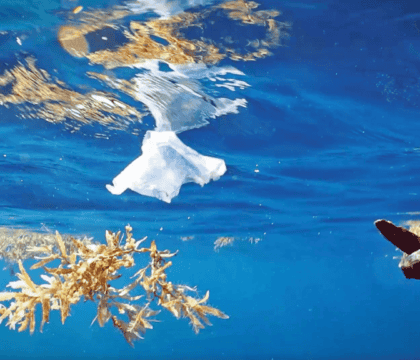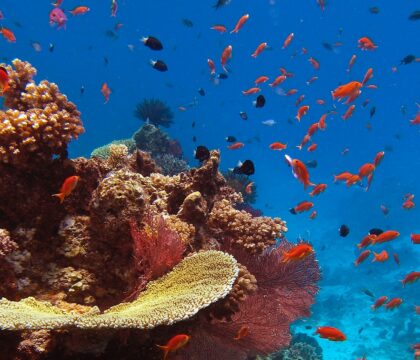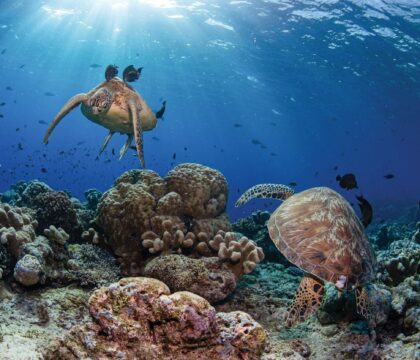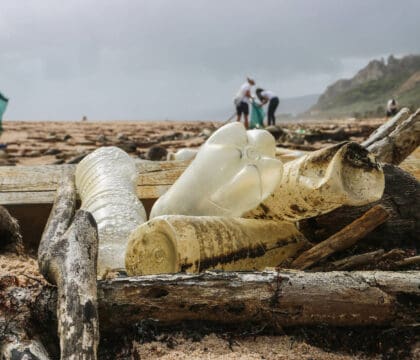March 29, 2024 • Program Updates
Members of the Oceanic Society team recently traveled to Pattaya, Thailand to lead a behavior change training workshop for sea turtle conservation professionals who were gathered from around the world to participate in the 42nd International Sea Turtle Symposium.
The workshop, titled “Developing Behavior Change Strategies for Sea Turtle Conservation,” was organized and led by Team BEACH, a partnership between Oceanic Society, Human Nature Group, and Disney Conservation. With support from the U.S. Fish and Wildlife Service and the Association of Zoos and Aquariums’ Sea Turtle SAFE program, we convened more than 40 people from more than a dozen countries to participate. It was the second such workshop led by Team BEACH; the first was held in Cartagena, Colombia in March 2023.
The goal of the workshop was to introduce behavior change theory and social science to sea turtle conservation practitioners, as well as to put those principles and techniques into practice with real-world examples. While many sea turtle conservation organizations implement outreach programs in their communities, not all of them are designed with tangible behavior change goals and evaluation plans. Through this training workshop, Team BEACH aims to help conservation practitioners to improve their programs’ impacts.
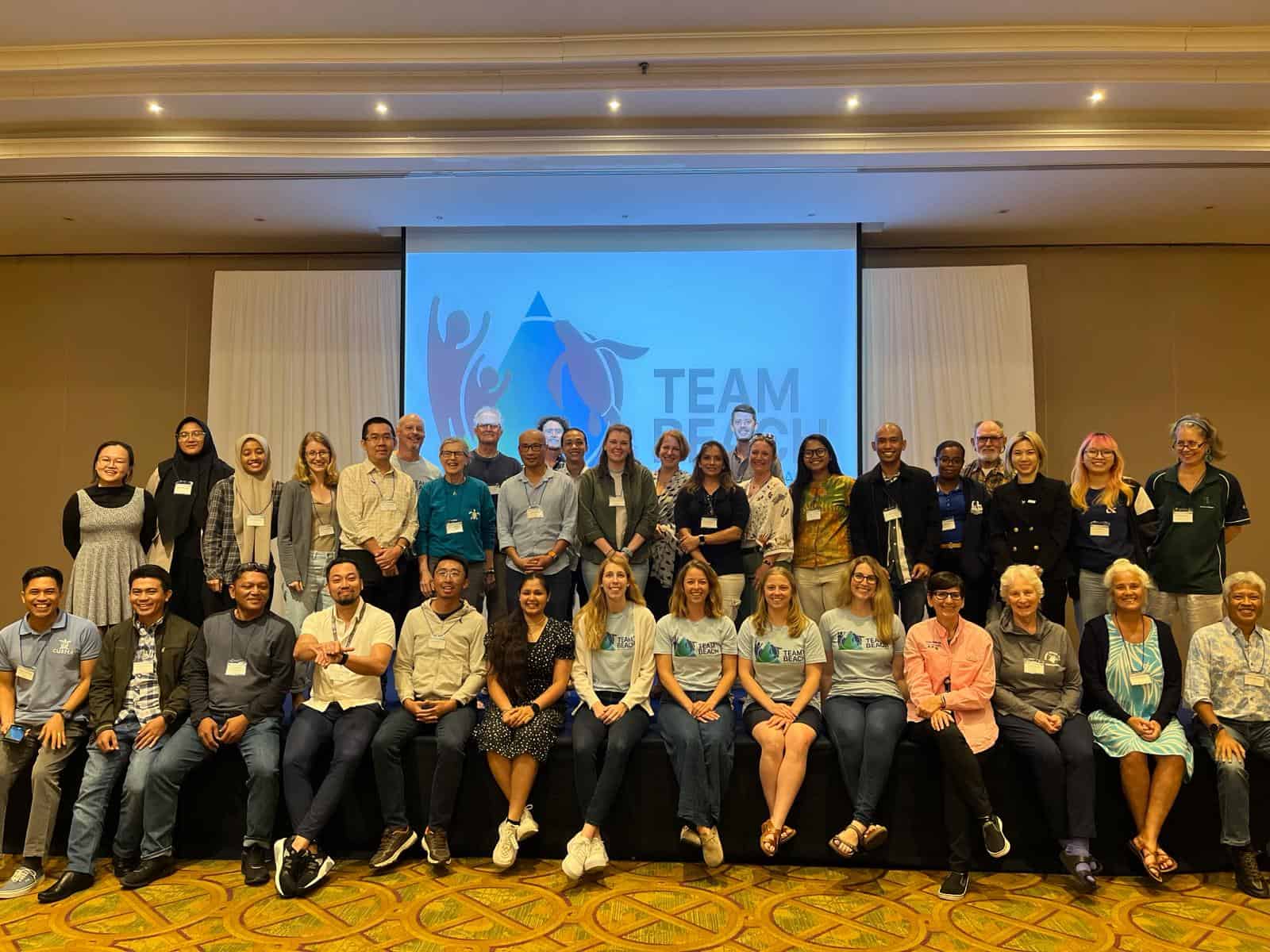
Designing Behavior Change Campaigns: Workshop & Training
For this workshop, Team BEACH solicited and selected case studies from our global network of practitioners — real world examples of sea turtle conservation challenges that require behavior change solutions — with an emphasis on programs addressing issues of sea turtle take and trade in Southeast Asia. Four case studies were selected, and those were presented at the workshop for discussion. In addition, members of Team BEACH presented an overview of behavior change theory, as well as Team BEACH’s framework for designing and evaluating behavior change campaigns.
The following case studies were presented and discussed at the workshop:
Organization: Fauna & Flora Myanmar
Location: Ayeyarwaddy, Tanintharyi, and Rakhine region, Myanmar
Challenge: Bycatch
Focus: Working with fishermen to change fishing practices, promoting safe handling of turtles, and reducing environmental pollution.
Organization: Anambas Foundation
Location: Teluk Dalam Island, Sunggak Village, Anambas Islands Indonesia
Challenge: Illegal harvesting of turtles and eggs
Focus: Reducing illegal egg harvesting and promoting turtle protection among fishers in Sunggak Village.
Organization: Lestari NGO, Zoo Liberec, and Andalas University
Location: Pulau Banyak and Nias, Sumatra, Indonesia
Challenge: Illegal harvest and trafficking of sea turtles
Focus: Strengthening local surveillance at sea, collaboration with law enforcement, and targeting Nias fishers to reduce turtle harvests.
Organization: CURMA
Location: La Union, Philippines
Challenge: Managing tourism influx
Focus: Creating protective policies and awareness campaigns to promote responsible tourism and protect sea turtles from disturbances.
The workshop kicked off with an introductory discussion of various behavioral science theories, focusing on understanding audiences and the catalysts of human behavior—integral components for designing successful campaigns and projects. Participants learned about best practices, common pitfalls, and hurdles encountered when employing behavioral science, as well as the most effective approaches for specific scenarios.
From there, participants divided into four groups, each assigned to a case study, to brainstorm effective behavior change solutions for the respective challenges. Guided by a specialized behavior change action plan and toolkit, this exercise aimed to deconstruct the elements of each case study for a more nuanced understanding and targeted behavioral interventions.
Participants were then tasked with presenting their solutions to the wider group, fostering open dialogues about each proposed solution with fellow workshop participants. By the workshop’s conclusion, attendees had gleaned insights from behavior change experts and successfully applied these insights to real-life scenarios faced by sea turtle conservation professionals.
Travel Grants Sponsor Workshop Participation
Thanks to support from U.S. Fish and Wildlife Service, Oceanic Society was able to fund the participation of 14 sea turtle conservation practitioners from throughout the Southeast Asia region, including Cambodia, Indonesia, Myanmar, Philippines, Thailand, and Vietnam. Not only were the travel grant recipients able to attend the Team BEACH workshop, but also the entire 42nd International Sea Turtle Symposium in Pattaya, Thailand, at which they had the opportunity to learn and exchange with more than 500 members of the global research and conservation community.
Next Steps
Following the workshop, the Team BEACH coordinators will review and refine the recommendations and draft plans that were developed for each case study, and will ultimately provide a behavior change strategy back to each participating organization. Case studies will also be shared online and among the Team BEACH network—for examples of what this will look like, explore the case studies and strategies from last year’s workshop.
About Team BEACH
Team BEACH (BE A CHangemaker) is a global network that aims to strengthen and measure the impact of sea turtle education and outreach projects worldwide. It is a platform to support knowledge and resource sharing among conservationists and social scientists seeking to promote outreach strategies that result in meaningful behavior change. Launched by the State of the World’s Sea Turtles Program / Oceanic Society and Disney Conservation, Team BEACH is now a growing network of dozens in the sea turtle community managed by Roderic Mast, Brian Hutchinson, Ashleigh Bandimere, Lindsay Mosher (Oceanic Society/SWOT), and Rachel Smith, and Kelley Anderson (Human Nature Group).
Learn more about Team BEACH in our recent publication: How Behavioral Science (and Team BEACH) Can Help Sea Turtles

